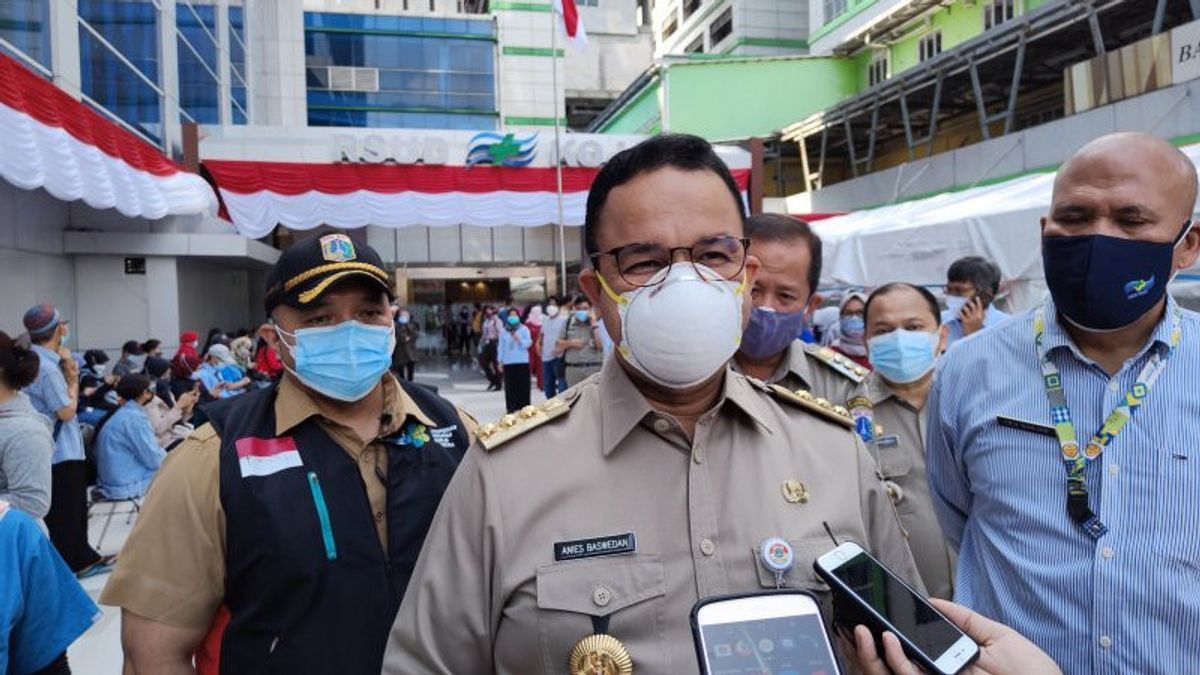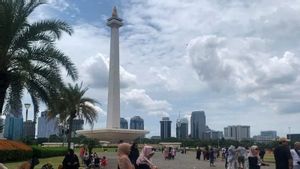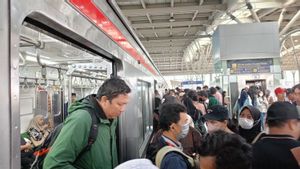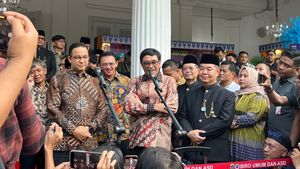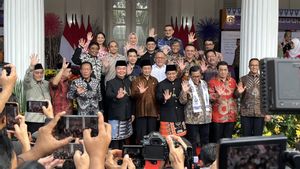JAKARTA - DKI Jakarta Governor Anies Baswedan admitted that the Capital City is ready to implement emergency PPKM. It is known that the emergency PPKM in Java and Bali is valid from July 3 to July 20.
Anies said that the ranks of the DKI Provincial Government, Polda Metro Jaya, and Pangdam Jaya had coordinated in implementing emergency PPKM.
"We in DKI are ready to carry out. We have been coordinating intensively in the last few days. So all levels of the Provincial Government, the Jaya Regional Military Command, the Metro Jaya Police, we have coordinated," Anies told reporters, Thursday, July 1.
Previously, President Joko Widodo officially announced the implementation of restrictions on community activities (PPKM) specifically in Java and Bali starting on July 3, 2021.
This is done considering the surge in COVID-19 cases continues to occur, plus the spread of new variants of COVID-19 which is increasingly widespread.
"I have decided to implement an emergency PPKM from July 3 to July 20, 2021, specifically in Java and Bali," Jokowi said on the Presidential Secretariat's Youtube video, Thursday, July 1.
Jokowi said that this emergency PPKM will include restrictions on community activities that are stricter than those that have been in effect, both micro PPKM and PSBB.
"In detail how to arrange this emergency PPKM, I have asked the Coordinating Minister for Maritime Affairs (Luhut BInsar Panjaitan) to explain as clearly as possible in detail about this restriction," said Jokowi.
Currently, there has been no official announcement from Luhut regarding the Java-Bali emergency PPKM mechanism that will take effect. However, Luhut has compiled a number of rules in the emergency PPKM, which are as follows:
1. 100 percent work from home for non-essential sector offices
2. All teaching and learning activities are carried out online (online)
3. For essential sector offices, a maximum of 50 percent of work from office (WFO) employees are applied with a health protocol and for critical sectors, a maximum of 100 percent of WFO employees are allowed with a health protocol.
a. The essential sectors include finance and banking, capital markets, payment systems, information and communication technology, non-COVID-19 quarantine handling hotels, and export-oriented industries.
b. The coverage of critical sectors is energy, health, security, logistics and transportation, food, beverage and supporting industries, petrochemicals, cement, national vital objects, disaster management, national strategic projects, construction, basic utilities (such as electricity and water), and fulfillment industries. basic daily needs of the community.
c. Supermarkets, traditional markets, grocery stores, and supermarkets selling daily necessities are limited to operating hours until 20:00 local time with a capacity of 50 percent of visitors. Pharmacies and drug stores can be fully open for 24 hours.
4. Shopping centers/malls/trade centers are closed.
5. The implementation of eating/drinking activities in public places (restaurants, restaurants, cafes, street vendors, hawker stalls), both those located in separate locations and those located in shopping centers/malls only accept delivery/take away and do not accept meals on the spot (dine-in).
6. The implementation of construction activities (construction sites and project sites) operates 100 percent by implementing stricter health protocols
7. Places of worship (mosques, prayer rooms, churches, temples, monasteries and pagodas, as well as other public places that function as places of worship) are temporarily closed.
8. Public facilities (public areas, public parks, public tourist attractions and other public areas) are temporarily closed.
9. Art/cultural, sports and social activities (locations of arts, culture, sports facilities, and social activities that can cause crowds and crowds) are temporarily closed.
10. Public transportation (public vehicles, mass transportation, taxis (conventional and online) and rental/rental vehicles) is enforced with a maximum capacity setting of 70 percent by implementing stricter health protocols.
11. The wedding reception is attended by a maximum of 30 people by implementing stricter health protocols and not eating at the reception. Provision of food is only allowed in a closed place and to take home.
12. Domestic travelers using long-distance transportation modes (airplanes, buses, and trains) must show a vaccine card (at least dose I vaccine) and H-2 PCR for airplanes and antigen (H-1) for other long-distance transportation modes .
13. Masks are still worn when carrying out activities outside the home. It is not permitted to use a face shield without the use of a mask.
14. The implementation of micro PPKM in red zone RT/RW is still in effect.
The English, Chinese, Japanese, Arabic, and French versions are automatically generated by the AI. So there may still be inaccuracies in translating, please always see Indonesian as our main language. (system supported by DigitalSiber.id)
